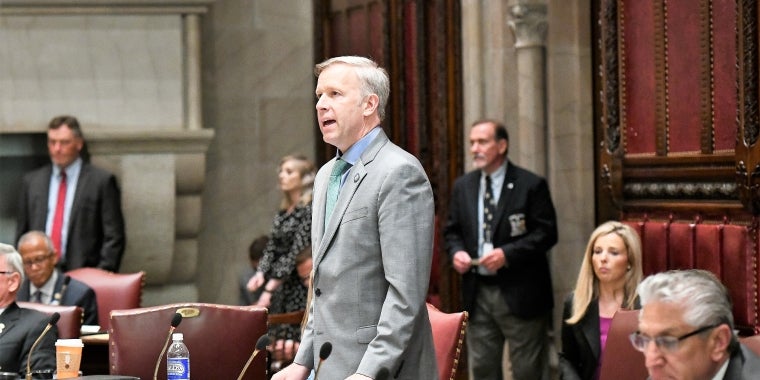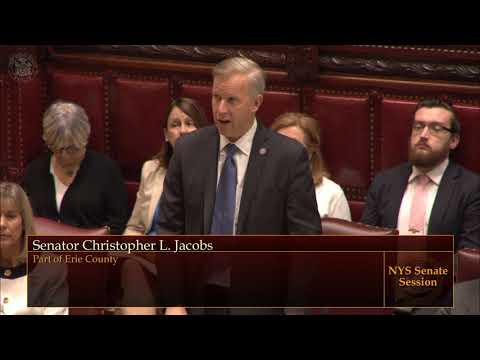
Jacobs Calls Farm Bill Devastating to State's Agriculture Industry
Senator Jacobs
June 20, 2019
-
ISSUE:
- Family Farms
- Farmworkers

(Albany, NY) – New York State Senator Chris Jacobs criticized the Senate’s Democrat majority for passing a bill today that he said would cause “irreparable harm to the State’s already fragile agriculture industry.”
The bill, dubbed by supporter’s as the Farm Laborers Fair Practice Act, was approved in a party-line vote, despite strong and wide opposition from respected stakeholders like the New York Farm Bureau, Grow NY Farms, Farm Credit East, the National Federation of Independent Businesses and countless upstate and family owned farms.
“Adding $300 million in operating costs on to the backs of New York’s farmers is anything but fair,” said Senator Jacobs. “Nor is it fair to the suppliers and other industries dependent on a thriving agriculture economy, and in reality it is even more unfair to the very farm workers the supporters of this bill claim to want to help.”
Objectionable provisions of the bill include restricting the number of consecutive days that farm employees can work, and new mandatory overtime requirements that will either dramatically increase labor costs, lead to fewer hours worked and less money earned for workers, or potential loss of product that loses value due to delayed harvesting.
Critics of the bill have stated that it fails to take into consideration the need for flexibility in scheduling with such a weather dependent and time sensitive industry. It also fails to recognize that farm, migrant and H2A Visa workers are seeking to maximize the number of hours they can work given the seasonal nature of what they do.
Farm owners have argued that if employees are denied the opportunity to work the maximum numbers of hours they would like to, and that are required due to the timing and conditions of the products that need to be harvested, they will simply go elsewhere for work. Their most likely destinations will be states like Ohio, Pennsylvania and Michigan, or to Canada, all of whom compete directly with New York farms.
In advocating against passage of the legislation, Dale Stein, senior partner of Stein Farms in Genesee County said, “We’re at the point I think where this has the potential to be the single greatest economically devastating effect on agriculture in New York State in my lifetime.”
Jacobs pointed to the fact that labor costs already represent 13.2 percent of New York farm expenses versus a national average of 9.5 percent. Farm closure rates are at 9 percent, also higher than the national average, and while the immediate impact will be felt primarily in farming communities in upstate New York, Jacobs said the negative consequences of the bill becoming law would be felt all across the state.
“When farming and agriculture are no longer viable in New York State, our state’s foods supply will be compromised, as will the industry’s supply chain and the role that agriculture plays in attracting jobs and investment. Passing this bill was a mistake that didn’t need to happen,” Jacobs concluded.
Share this Article or Press Release
Newsroom
Go to Newsroom
Jacobs Convenes Great Lakes Roundtable
May 16, 2019


